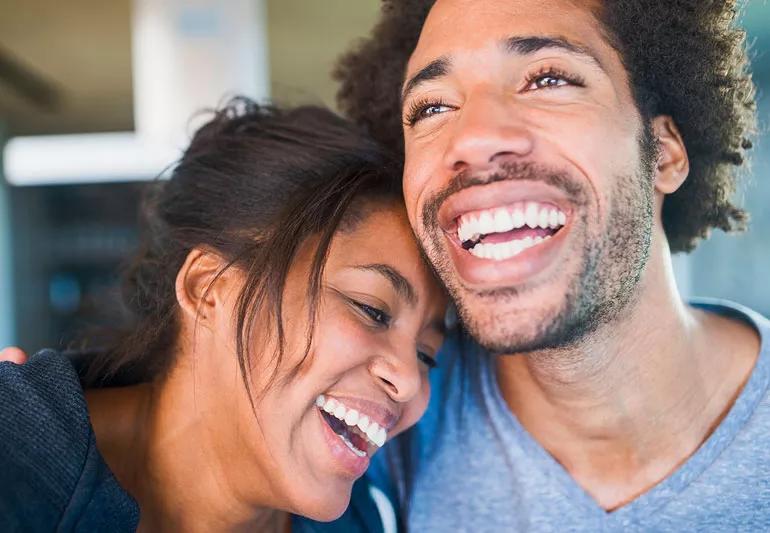Protecting yourself and others from a virus that causes cancer is the central focus

Image content: This image is available to view online.
View image online (https://assets.clevelandclinic.org/transform/2a6d8c16-41eb-4b9d-a469-8dfe33ed57c4/loving-Laughing-Couple-483963347-770x533-1_jpg)
Closeup of a loving, laughing and hugging couple.
The human papillomavirus (HPV) is one of a few viruses responsible for certain kinds of cancer. But more than that, it’s one the medical community has rallied around for some time in an effort to make sure people are vaccinated against the virus at an early age.
Advertisement
Cleveland Clinic is a non-profit academic medical center. Advertising on our site helps support our mission. We do not endorse non-Cleveland Clinic products or services. Policy
Over the years, as research has continued to evolve, there’s been an effort to get people as old as 45 to get vaccinated for HPV because of missed opportunities they might have had before a vaccine was made available.
Ob/Gyn Salena Zanotti, MD, shares the importance of keeping up with the HPV vaccine and why you may want to consider getting it if you haven’t already.
HPV is the most common sexually transmitted infection (STI) in the United States. It can affect both men and women, and people who have HPV often show no signs or symptoms at all before the infection goes away on its own. And there’s much more we can do to change the way we talk about HPV and market the HPV vaccine to all populations.
But for women, HPV has a more debilitating impact. There are more than 200 strains of the HPV virus, and certain strains, specifically HPV 16 and 18, are responsible for about 70% of all cervical cancers.
Since the HPV vaccine was created in 2006, children have been able to have access to the vaccine as early as 9 years old and most commonly around 11 or 12. The reason is so they’re protected from the virus before they become sexually active. And while the vaccine provides better protection at a younger age, Dr. Zanotti says there’s still some valuable protection for adults receiving it at an older age.
Advertisement
“A lot of people aren’t sexually active until later in life, and many people have multiple partners and aren’t monogamous after the age of 26,” she notes. “These individuals still want to get HPV coverage to protect themselves.”
In fact, Dr. Zanotti says it’s becoming increasingly common for women who’ve been HPV-negative their whole life to acquire the virus later in life, from their 30s to even their 60s, if they have a new partner.
Almost all cervical cancers are caused by HPV. And according to the U.S. Centers for Disease Control and Protection (CDC), HPV has also been linked to several other kinds of cancer, including:
Originally, the recommendations for HPV vaccinations were extended to adults as old as 26. In 2018, the U.S. Food and Drug Administration (FDA) expanded the age for HPV vaccination to 45. And while it’s likely that someone later in life might have already come into contact with HPV, the HPV vaccine is just one of several vaccines adults should continue to keep up with to protect themselves and others from potential infection. Plus, even if you’ve had HPV, getting the vaccine can still be beneficial because it could provide protection from several other strains you haven’t yet come into contact with.
Dr. Zanotti recognizes that the decision whether to get the vaccine is an individual one, but one that should be discussed with your healthcare provider, especially if you’re sexually active or immunocompromised.
“If you’re going to be with the same partner for the rest of your life and you’re both HPV negative, you probably don’t need it,” she continues. “Unfortunately, none of us know exactly what the future’s going to hold for us. So, if things may change in your partner situation ― or you may have a new partner who already has HPV ― this vaccine may give you protection.”
Advertisement

Sign up for our Health Essentials emails for expert guidance on nutrition, fitness, sleep, skin care and more.
Learn more about our editorial process.
Advertisement
The virus often clears up on its own within two years, but it can also linger and can cause further complications
Infants are at high risk of severe RSV, but getting the vaccine during pregnancy helps protect them from it
Most oropharyngeal cancers can be traced to a virus that can be shared during oral sex
Chilblain-like skin lesions and rashes are mild (and rare) complications of many viral infections, not just COVID-19
Yes, but symptoms can be easy to miss
‘Walking pneumonia’ is milder and doesn’t always require medication — but it’s also highly contagious
From washing your hands and disinfecting surfaces to boosting your immune health, there are many ways to reduce your flu risk
Most can return to work or school when they’re symptom-free for 24 hours
Prioritize your health by managing stress, strengthening your social connections and getting quality sleep
Bolsters, blankets, pillows and blocks can offer extra support, stability and comfort
Allergies, postnasal drip, asthma or reflux could be to blame for a cough that won’t quit